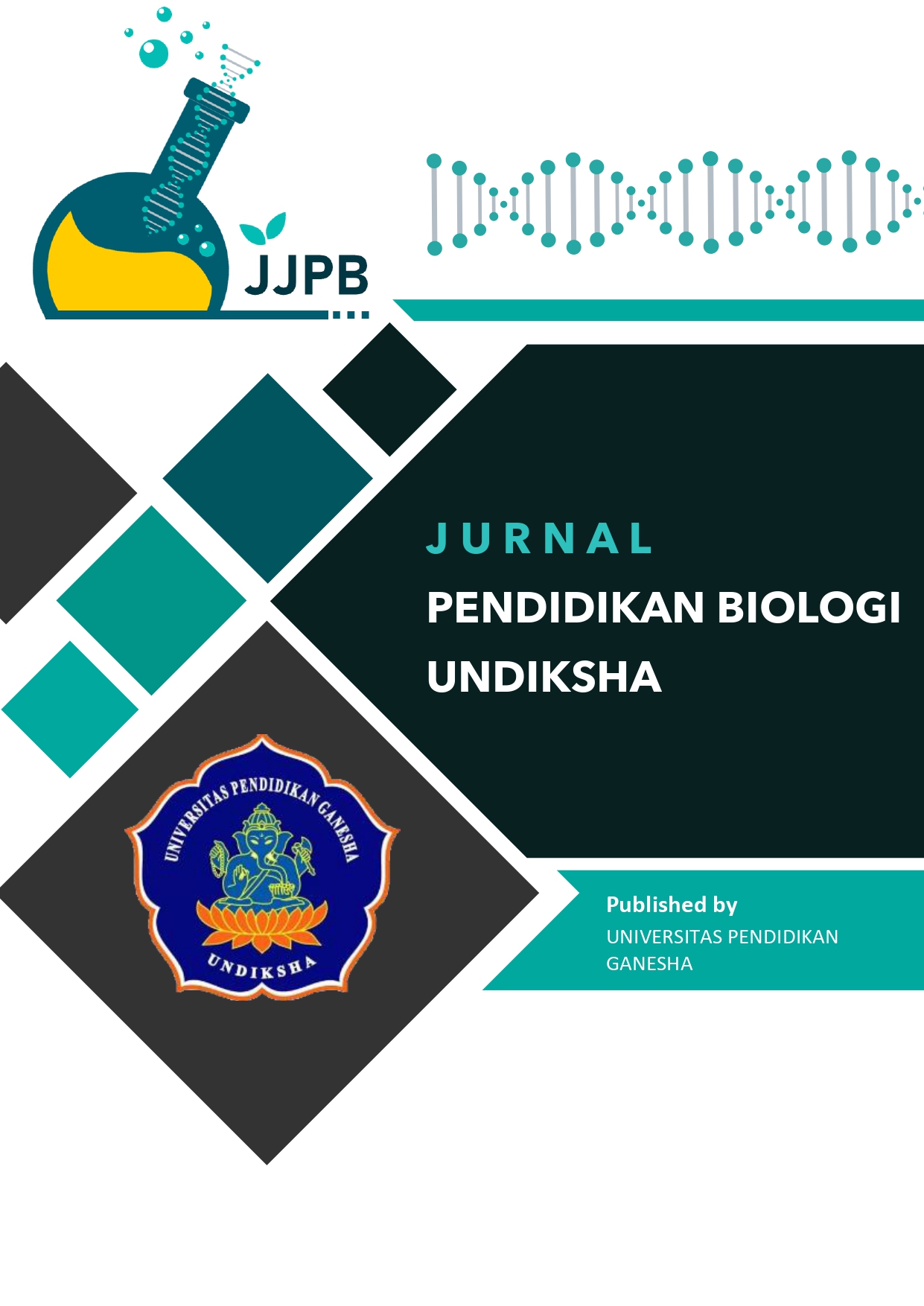Pengembangan Web Pembelajaran Biologi Berbasis Socio-Scientific Issues (SSI) Topik Sistem Pencernaan untuk Mengembangkan Literasi Kesehatan Siswa SMA
Keywords:
learning web, SSI, health literacy, digestive systemAbstract
The aims of this study to determine feasibility of developing a biology learning web based on Socio-Scientific Issues (SSI) in digestive system to develop student’s health literacy. This is a Research and Development (R&D) with ADDIE model. Data was collected using an assessment instrument with a Likert scale and a Guttman scale which were analyzed descriptively qualitatively and quantitatively. The results of this study indicate that the web sufficient the criteria based on the results of assessment and suitable for use as teaching materials in learning.
References
Anglada, D. (2007). An Introduction to Instructional Design: Utilizing a Basic Design Model. (Online) http://www.pace.edu/ctlt/newsletter
Arikunto, S. (2009). Prosedur Penelitian Suatu Pendekatan Praktek. Jakarta: Rineka Cipta.
Callahan, Brendan E. (2009). Enhancing Nature of Science Understanding, Reflective Judgment, and Argumentation through Socioscientific Issues. Dissertation. University of South Florida. (Online) (http://scholarcommons.usf.edu/etd/1886/pdf).
Choe, H. (2019). Eating Together Multimodally: Collaborative eating in mukbang, a Korean livestream of eating. Language in Society, 48 (2). 171-208.
Jaureguilorda, M. (2019). Mukbang culture: Why do millions of people watch others eat and drink in front of computers? BBC NEWS. (Online) (https://www.bbc.com/zhongwen/simp/world-48495172)
Kang, E., Lee, J., Kim, K. H., & Yun, Y. H. (2020). The popularity of eating broadcast: Content analysis of “mukbang” YouTube videos, media coverage, and the health impact of “mukbang” on public. Health informatics journal, 26(3), 2237-2248. 1460458220901360.
Maghfirah, Cut Putri. (2020). Pengembangan Bahan Ajar Berbasis Masalah Kesehatan untuk Meningkatkan Literasi Kesehatan Siswa SMA Pada Materi Sistem Imun. S2 thesis, Universitas Pendidikan Indonesia.
Nutbeam, D. (2000). Health literacy as a public health goal: a challenge for contemporary health education and communication strategies into the 21st century. Health Promotion International, 15. 259-267. https://doi.org/10.1093/heapro/15.3.259
Permana, T. I., Suwono, H., & Listyorini, D. (2016). Analisis Awal Literasi Kesehatan Siswa SMA Kelas XI MIA di Kabupaten Malang. In Proc. Seminar Nasional II.
Sadler, T. D. (2004). Informal reasoning regarding socioscientific issues: A critical review of research Journal of Research in Science Teaching, 41(5), 513-536. https://doi.org/10.1002/tea.20009
Subiantoro, A. W., Ariyanti, N. A., & Sulityo. (2013). Pembelajaran materi ekosistem dengan socio-scientific issues dan pengaruhnya terhadap reflective judgement siswa (Socio-scientific issues based learning on the topic of ecosystem and its impact on student’s reflective judgments). Jurnal Pendidikan IPA Indonesia, 2 (1), 41-47. DOI:10.15294/jpii.v2i1.2508
Subiantoro, A. W., Handziko, R. C., & Wibowo, Y. (2021). A narrative inquiry of socio-scientific issues-based e-learning development in biology to promote student health literacy. Biosfer: Jurnal Pendidikan Biologi, 14(1), 132-143. https://doi.org/10.21009/biosferjpb.20373
United Nations Educational, Scientific and Cultural Organization (UNESCO). (2003). Literacy as Freedom. Paris: UNESCO.
World Health Organization (WHO). (2008). 2008-2013 Action Plan for the Global Strategy for the Prevention and Control Noncomunicable Diseases. Geneva: World Health Organization.
Downloads
Published
Issue
Section
License
Copyright (c) 2022 Jurnal Pendidikan Biologi undiksha

This work is licensed under a Creative Commons Attribution-ShareAlike 4.0 International License.







